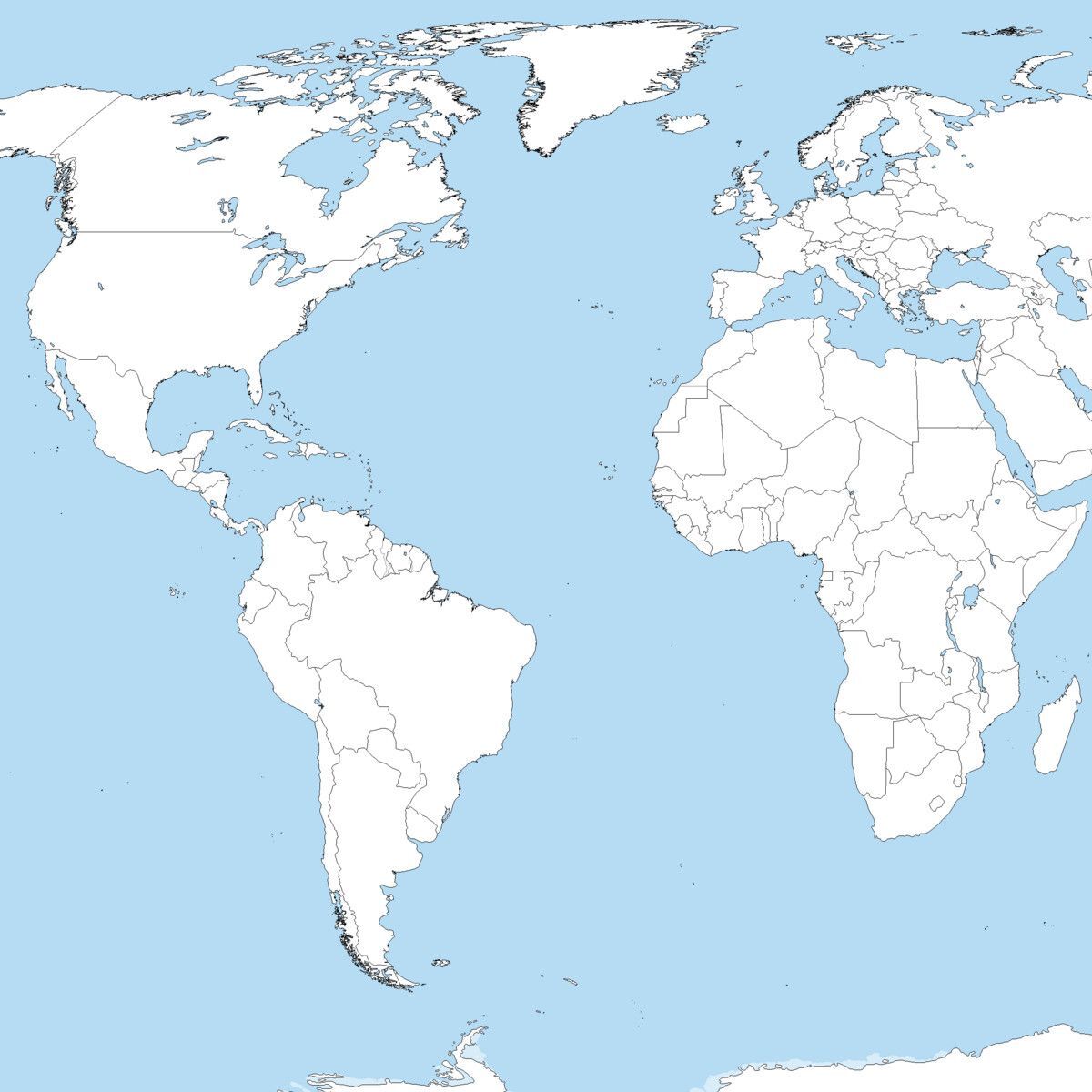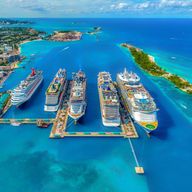

Riviera - 4/1/2028
The April 1, 2028 cruise on the Riviera departs from Yokohama (tokyo), Japan. On this 10 Night The Shinto Way (Yokohama Roundtrip) sailing, the ship will visit a total of 10 cruise port destinations, including its departure port. The Riviera sets sail on Saturday, Apr 1st and returns on Tuesday, Apr 11th.
Cruise Itinerary
Itinerary
Riviera - April 1, 2028 - 10 Nights
| Day | Date | Port |
|---|---|---|
| 1 | Apr 1st | Yokohama (tokyo), Japan |
| 2 | Apr 2nd | Nagoya, Japan |
| 3 | Apr 3rd | Kochi, Japan |
| 4 | Apr 4th | Kagoshima, Japan |
| 5 | Apr 5th | Nagasaki, Japan |
| 6 | Apr 6th | Busan (Pusan), South Korea |
| 7 | Apr 7th | Hiroshima, Japan |
| 8 | Apr 8th | Beppu, Japan |
| 9 | Apr 9th | Kyoto Kobe Japan |
| 10 | Apr 10th | Shimizu, Japan |
| 11 | Apr 11th | Yokohama (tokyo), Japan |
The Riviera sails on April 1, 2028 for a 10 Night The Shinto Way (Yokohama Roundtrip). The ship will depart the port of Yokohama (tokyo), Japan at 5:00 PM and will return to the port of Yokohama (tokyo), Japan on Apr 11th at 8:00 AM. During the 11-day journey, the Riviera will visit 9 additional ports and will spend 0 days at sea.
Itinerary Safety Score
Based on my comprehensive research of cruise port safety information, including recent crime reports, travel advisories, Global Peace Index rankings, and specific port security concerns, we've created a "safety score" for each cruise port stop. The overall rating below represents a combined score for your specific cruise itinerary.
Cruise Ship

Riviera
Oceania Cruise Line
The Riviera was built in 2012 and is among Oceania's 6 ships in its fleet. The Riviera is included in the cruise line's Oceania class. In the cruise ship stats below, you'll find the Riviera vs all other Oceania ships.
Cruise Ports
Yokohama (Tokyo), Japan, offers docking at Yokohama Port with excursions to Tokyo. Travelers explore Senso-ji Temple and Shibuya Crossing. Excursions visit Kamakura’s Great Buddha. Local markets sell yakitori. The peak season, April to October, brings mild weather for city tours. Photography captures neon streets and Tokyo Bay vistas. Dining onboard includes sushi, a Japanese favorite. Souvenirs, like ukiyo-e prints, are sold in ship shops. Briefings cover Edo history. Light clothing and sun protection suit the temperate climate, while comfortable shoes enhance city walks. Yokohama’s urban gateway offers a vibrant Japanese stop. Cruise travelers enjoy a mix of historic temples and modern cityscapes, making Yokohama an engaging destination.
Nagoya, Japan, provides docking at Nagoya Port. Travelers explore Nagoya Castle and Atsuta Shrine. Excursions visit Toyota’s factory museum for automotive history. Local markets sell kishimen noodles. The peak season, March to May, brings cherry blossoms and mild weather. Photography captures samurai castles and urban skylines. Dining onboard includes hitsumabushi, a Nagoya eel dish. Souvenirs, like noren curtains, are sold in ship shops. Briefings cover Aichi’s industrial history. Light layers suit the temperate climate, while comfortable shoes enhance castle walks. Nagoya’s blend of history and modernity offers a vibrant Japanese stop. Cruise travelers enjoy a mix of samurai heritage, spiritual sites, and industrial innovation, making Nagoya an engaging destination for exploring Japan’s cultural and technological richness in the Chubu region.
Kochi, Japan, has docking at Kochi Port. Travelers explore Kochi Castle’s samurai history. Excursions visit Katsurahama Beach and Ryugado Cave. Local markets sell bonito flakes. The peak season, March to May, brings mild weather. Photography captures castle views and Pacific shores. Dining onboard includes katsuo tataki, a local seared tuna. Souvenirs, like yosakoi crafts, are sold in ship shops. Briefings cover Shikoku’s history. Light layers suit the temperate climate. Comfortable shoes enhance castle tours. Kochi’s coastal heritage offers a serene Japanese stop, blending samurai history with scenic beauty.
Kagoshima, Japan, has docking at Kagoshima Port. Travelers explore Sakurajima volcano’s active trails. Excursions visit Sengan-en Garden’s historic grounds. Local markets sell shochu. The peak season, March to May, brings cherry blossoms. Photography captures volcanic landscapes and coastal vistas. Dining onboard includes kurobuta pork, a Kagoshima specialty. Souvenirs, like ceramic crafts, are sold in ship shops. Briefings cover Kyushu’s history. Light layers suit the temperate climate. Sturdy shoes enhance volcano hikes. Kagoshima’s volcanic beauty offers a dynamic Japanese stop, blending nature with cultural heritage.
Nagasaki, Japan, offers docking at Nagasaki Port. Travelers explore the Peace Park and Atomic Bomb Museum. Excursions visit Glover Garden’s colonial mansions. Local markets sell champon noodles. The peak season, March to May, brings cherry blossoms and mild weather. Photography captures historic sites and Dejima Island views. Dining onboard includes sara udon, a Nagasaki dish. Souvenirs, like castella cakes, are sold in ship shops. Briefings cover Nagasaki’s WWII history. Light layers suit the temperate climate, while comfortable shoes enhance park walks. Nagasaki’s blend of history and resilience offers a poignant Japanese stop. Cruise travelers enjoy a mix of somber memorials, colonial heritage, and scenic harbors, making Nagasaki an engaging destination for exploring Japan’s cultural and historical depth on Kyushu Island.
Busan, South Korea, in the southeast, sits on the Korea Strait, facing the Sea of Japan. The port is near Jagalchi Fish Market, where fresh seafood is sold daily. Haeundae Beach offers urban waterfront access, while Beomeosa Temple, in the forested hills, provides cultural history. The Gamcheon Culture Village, with colorful houses, draws visitors for its art and narrow alleys. Busan’s port history as a trading hub is evident in its maritime museum. The nearby Nakdong River Estuary is a birdwatching site, and the city’s coastal cliffs offer walking trails with ocean views.
Hiroshima, Japan, has docking at Hiroshima Port. Travelers explore Peace Memorial Park and Atomic Bomb Dome. Excursions visit Miyajima’s floating Itsukushima Shrine. Local markets sell okonomiyaki. The peak season, March to May, brings cherry blossoms. Photography captures historic sites and island shrines. Dining onboard includes Hiroshima-style okonomiyaki. Souvenirs, like peace cranes, are sold in ship shops. Briefings cover WWII history. Light layers suit the temperate climate. Comfortable shoes enhance park walks. Hiroshima’s poignant history offers a profound Japanese stop, blending peace advocacy with cultural heritage.
Beppu, Japan, docks at Beppu Port, 3 kilometers from downtown, with shuttles for 10-minute rides. The city, population 120,000, features the Hells of Beppu, geothermal hot springs for viewing. Travelers relax at Kannawa Onsen, 15 minutes east. Excursions to Mount Tsurumi, 20 minutes north, offer cable car rides. Local markets sell yuzu products. Peak season April to October; taxis 800-1200 JPY. Dining includes toriten (chicken tempura) at onsen cafes. Souvenirs feature bamboo crafts.
Kyoto, Japan, offers a cruise excursion from Kobe Port. Travelers explore Kinkaku-ji and Fushimi Inari Shrine. Excursions visit Arashiyama Bamboo Grove. Local markets sell kaiseki. The peak season, March to May, brings mild weather for city tours. Photography captures golden pavilions and torii gates. Dining onboard includes sushi, a Japanese favorite. Souvenirs, like kimono crafts, are sold in ship shops. Briefings cover Heian history. Light clothing and sun protection suit the temperate climate, while comfortable shoes enhance shrine walks. Kyoto’s cultural charm offers a vibrant Japanese stop. Cruise travelers enjoy a mix of historic temples and scenic groves, making Kyoto an engaging destination.
Shimizu, Japan, offers docking at Shimizu Port. Travelers explore Mount Fuji viewpoints and Nihondaira’s tea gardens. Excursions visit Shizuoka’s Toro Ruins. Local markets sell wasabi. The peak season, April to October, brings mild weather for coastal tours. Photography captures Fuji’s slopes and Suruga Bay vistas. Dining onboard includes unagi, a Japanese favorite. Souvenirs, like tea crafts, are sold in ship shops. Briefings cover Shizuoka history. Light clothing and sun protection suit the temperate climate, while comfortable shoes enhance garden walks. Shimizu’s scenic charm offers a vibrant Japanese stop. Cruise travelers enjoy a mix of natural beauty and cultural heritage, making Shimizu an engaging destination for exploring Japan’s Fuji region.
Yokohama (Tokyo), Japan, offers docking at Yokohama Port with excursions to Tokyo. Travelers explore Senso-ji Temple and Shibuya Crossing. Excursions visit Kamakura’s Great Buddha. Local markets sell yakitori. The peak season, April to October, brings mild weather for city tours. Photography captures neon streets and Tokyo Bay vistas. Dining onboard includes sushi, a Japanese favorite. Souvenirs, like ukiyo-e prints, are sold in ship shops. Briefings cover Edo history. Light clothing and sun protection suit the temperate climate, while comfortable shoes enhance city walks. Yokohama’s urban gateway offers a vibrant Japanese stop. Cruise travelers enjoy a mix of historic temples and modern cityscapes, making Yokohama an engaging destination.